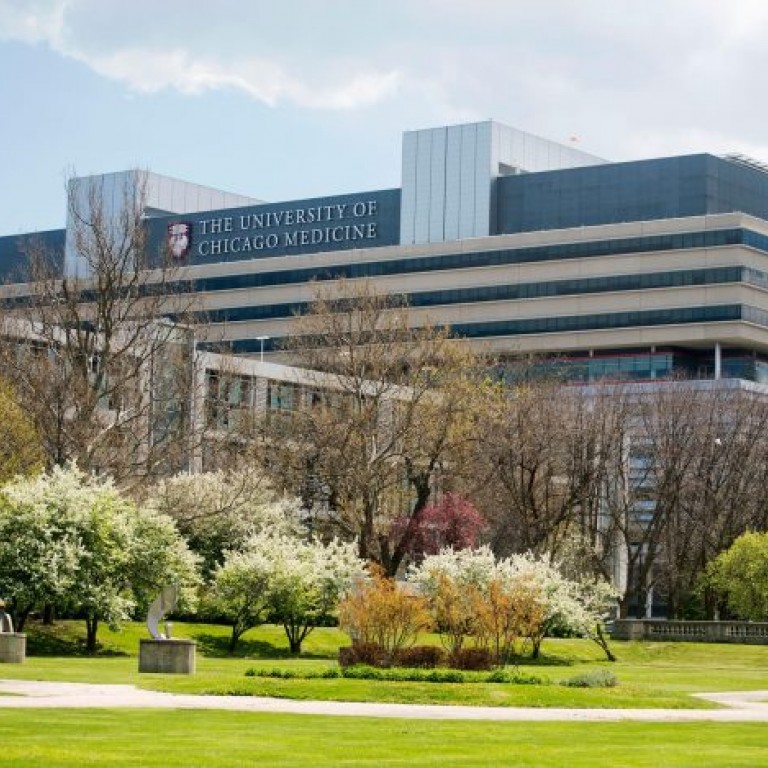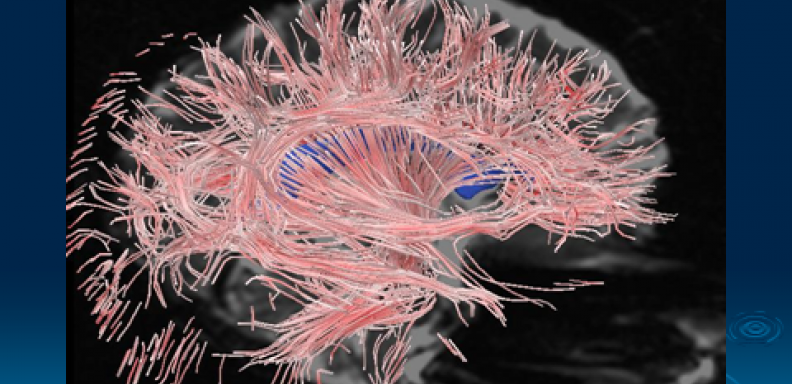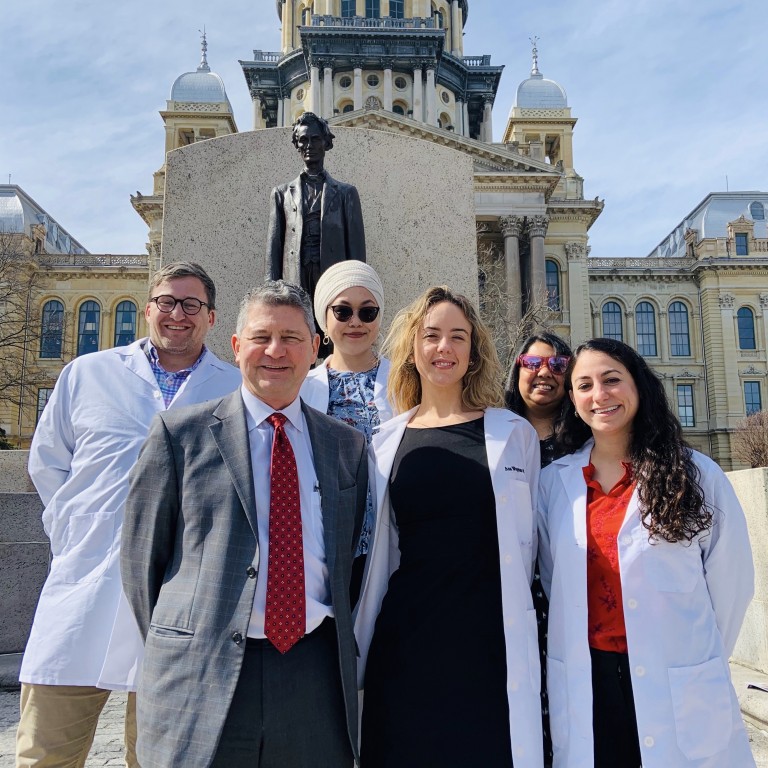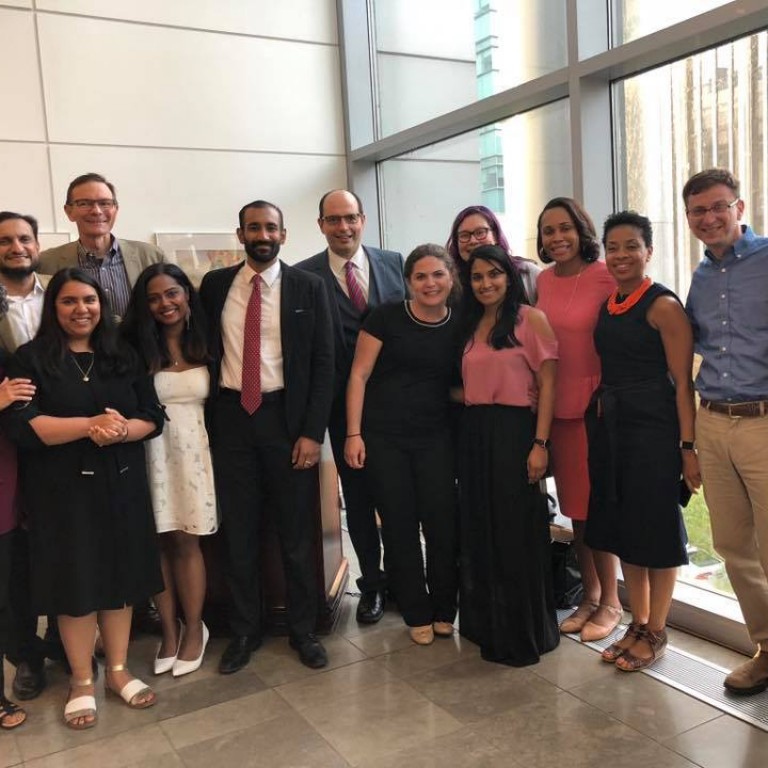Department of Psychiatry & Behavioral Neuroscience
Clinical Psychology Training Program
October 11, 2024
Dear Postdoctoral Fellowship Applicants:
Congratulations on being at this point in your graduate training! Thank you for your interest in the Clinical Psychology Postdoctoral Fellowship Program at the University of Chicago Medicine. We are pleased to provide you with our updated 2025-26 information. We are listed in the Universal Psychology Postdoctoral Directory (https://www.appic.org/Postdocs/Universal-Psychology-Postdoctoral-Directory-UPPD). For the 2025-26 training year, we will abide by the APPIC Selection Standards and the guidelines for the Matching Program administered by the Association of Postdoctoral Programs in Clinical Neuropsychology (APPCN).
Our clinical psychology fellowships are a component of the larger Clinical Psychology Training Program based in the Adult and Child Sections of the Department of Psychiatry and Behavioral Neuroscience at the University of Chicago. Our training program includes psychology externships in many different areas, an APA-accredited clinical psychology doctoral internship, and postdoctoral fellowships in psychology. Thus, clinical psychology has been an important component of departmental training for many years and is integrated within the interdisciplinary educational mission of the Department and the larger Medical Center. Our fellowships are designed to train health service psychologists for entry-level practice in academic settings in the specialized areas of health psychology, pediatric and child clinical psychology, trauma, and neuropsychology. The hallmarks of our program include evidence-based approaches to assessment, consultation, and intervention, and the integration of science and practice. While our programs do include some specific requirements, we attempt to meet our fellows’ specific training goals in order to best prepare for an academic clinical career. Ample supervision is available with opportunities to attend didactics with other trainees. We believe that we offer a challenging and supportive setting for obtaining fellowship training in Clinical Psychology.
Our annual stipend is consistent with NIH salary guidelines for postdoctoral training ($61,008) and is offered as part of a comprehensive package of benefits. For the 2025-26 training year, we will offer fellowship positions in three tracks.
- Pediatric Psychology (1 position). Materials should be addressed to Tina Drossos, Ph.D.
- Child Trauma (1 position). Materials should be addressed to Sonya Dinizulu, Ph.D. (sdinizulu@bsd.uchicago.edu) & Brad Stolbach, Ph.D.
- Clinical Neuropsychology (1 position). Materials should be addressed to Joseph Fink, Ph.D., ABPP. This position will be filled via the APPCN Match.
Our application deadline is Sunday, December 15, 2024 (11:59 EST). We will be using the APPA CAS portal for application submission and review. Applicants may register for the APPA here.
Application: Our program requires a CV, cover letter, and transcript submitted through APPA CAS. Applicants to the Adult Neuropsychology postdoctoral fellowship should also submit a deidentified neuropsychological report.
References. We require three letters of recommendation. If you are on internship and your internship Training Director (TD) is not one of your letter writers, we require a separate letter from your Internship Training Director (TD) indicating that you are on track to complete the internship program. If your TD is one of your existing references, this issue may be addressed in the recommendation letter
You will be contacted by email if you are selected for a virtual interview for all our fellowship programs. Interviews will occur on Monday, January 6, 2025 and Friday, January 17, 2025. As we will be following the APPIC Selection Standards for the Pediatric and Trauma fellowships, positions that remain open after the Common Hold Date (2/24/2025) will be reviewed on a rolling basis until filled. Our Adult Neuropsychology program will be following the policies of the APPCN Match.
Before deciding to apply to our program, please review our materials very carefully. You might also find it useful to review our internship brochure to learn more about our department, our training philosophy, our faculty, and available didactics. Our fellows’ clinical experiences are distinct from those of interns and internship rotations are not available to fellows, although there may be some overlap. We want you to fully appreciate the structure of our Department within which our clinical psychology training programs are embedded. We hope that you will apply to our fellowship because you believe it is a “great fit” with your long-term career goals. We will provide you with appropriate supervision, mentorship, and support for your professional development as a health service psychologist who is able to integrate science and practice in an academic environment.
As a final note, we continue to address the many changes to clinical practice and training in health service psychology following the COVID-19 pandemic. Over the past four years, we learned that it is impossible to have definite expectations for the future, and we recognize that ongoing flexibility and creativity is necessary. Responding to the level of public health risk posed by COVID-19 and other infections with the safety of our trainees, staff, faculty, and patients is our paramount concern, as we simultaneously meet the needs of the communities we serve. We are grateful for the scientific strides that have contributed to a greater understanding of disease and the availability of vaccination. All employees at UCM are required to be vaccinated for COVID-19 and influenza (with medical or religious exemptions available in rare circumstances). Our program is primarily in person and on site, although we do offer the flexibility of telehealth to patients who request these services. These telehealth visits are usually provided from on site. We provide didactics and supervision in person unless video formats are indicated for convenience, flexibility, and/or safety. In order to facilitate interprofessional collaboration, socialization among trainees and with our faculty, development of a support system and a general sense of community, we currently require trainees and faculty to be on site for a minimum of three days per week with most trainees on site every day. Our training program, department, division, and institution follow infection control procedures and national and state regulations as informed by science and safety. We are committed to maintaining the integrity of our training program and the acquisition of profession-wide competencies while balancing the safety of our trainees, faculty, and patients.
We wish you luck as you complete your degree! We look forward to reviewing your application and possibly meeting you “in person.” Feel free to contact us by email if you have further questions.
Sincerely,
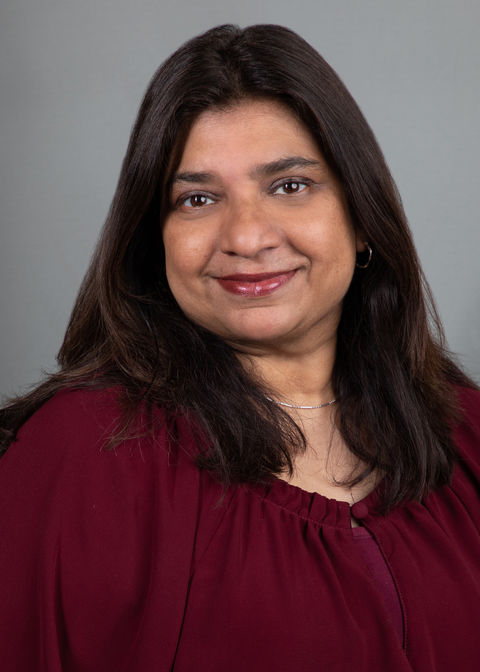
Shona Vas, Ph.D., ABPP
Director, Clinical Psychology Training
Director, Cognitive-Behavior Therapy Program
Associate Professor, Psychiatry & Behavioral Neuroscience
Contact Information: svas@bsd.uchicago.edu
Although the COVID-19 public health emergency ended earlier this year, we are aware that the pandemic has had significant effects on health service psychology education and training. We continue to respond to the level of risk posed by COVID-19 with the safety of our trainees, staff, faculty, and patients as our paramount concern, while continuing to meet the needs of the communities we serve. We are grateful for the scientific strides that have contributed to a greater understanding of the disease and the availability of vaccination. All employees at UCM are required to be vaccinated for COVID-19 and influenza (with medical or religious exemptions available in rare circumstances). Our program is primarily in person and on site, although we do offer the flexibility of telehealth to patients who request these services. These telehealth visits are usually provided from on site, although some hybrid work may be possible. We provide didactics and supervision in person unless video formats are indicated for convenience, flexibility, and/or safety. In order to facilitate interprofessional collaboration, socialization among trainees and with our faculty, development of a support system for our trainees, and a general sense of community, we currently require trainees and faculty to be on site for a minimum of three days per week, with most trainees on site every day. Our training program, department, division, and institution follow infection control procedures and national and state regulations as informed by science and safety. We are committed to maintaining the integrity of our training program and the acquisition of profession-wide competencies while balancing the safety of our trainees, faculty, and patients. Over the past three years, we learned that it is impossible to have definite expectations for the future, and we recognize that ongoing flexibility and creativity is necessary.




